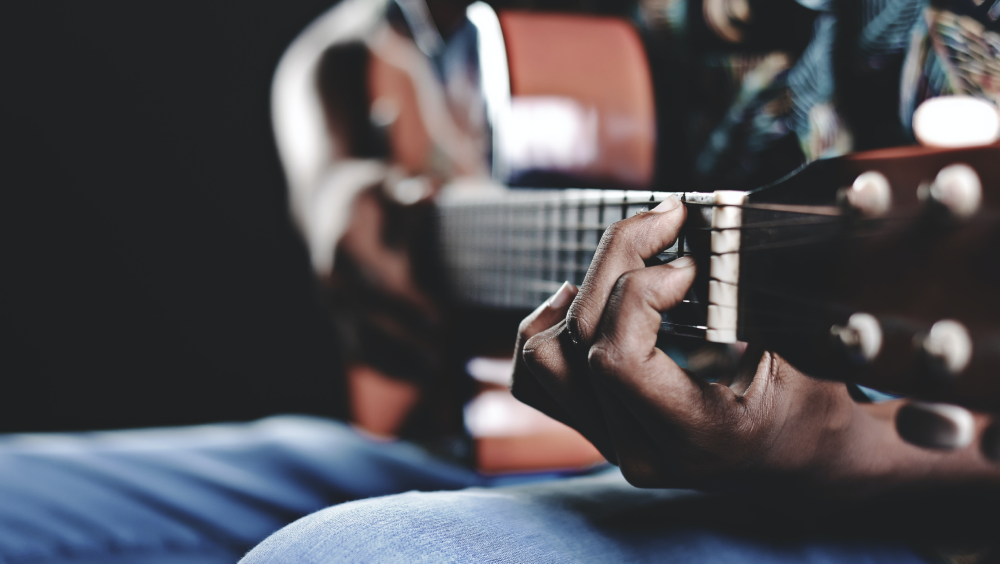Every year we hear loads of horror stories from UK acts that are turned away from the US for having insufficient visa cover.
Many are booked to perform and record Stateside, while others have even received UK funding to appear at the South by South West or CMJ showcases.
Although many musicians travel to the States every year without the correct documentation and get away with it, some are not so lucky and, if caught, the penalties are severe.
So, how do you overcome the immigration obstacles so you can play and record across the pond? Paul Samartin, partner at immigration law firm Laura Devine Solicitors, gives us the lowdown…
Please note: the below information does not constitute legal advice and is accurate as of 22 July 2014.
Do I need a visa to enter the US?
Yes. If you need to travel to the US to perform or record, broadly speaking there are two ways to (legally) do it: by obtaining an Electronic System for Travel Authorisation (ESTA) and traveling under the Visa Waiver Program (VWP), or by applying for and obtaining a work authorised visa, such as an O or P visa.
The hard truth is that as a member of the entertainment profession – which includes musicians, DJs, singers and other personnel such as technicians – the VWP is unlikely to be an option for you. Instead, you will need to apply for a temporary work authorised visa.
You may come across conflicting advice from those who suggest ‘risking it’ under the VWP. However, be aware that lying or omitting essential information about the purpose of your trip to the US will likely constitute fraud or misrepresentation and can have potentially serious consequences, including being barred from the US indefinitely. The US government gives relatively clear advice on eligibility for the VWP, so it is well worth establishing the appropriate route for you well in advance of travel and following it.
What about the ‘amateur entertainers’ classification – can they travel on the VWP to perform in the US?
According to US Department of State Foreign Affairs Manual 9 (41.31 Notes 11.3 and 13.7), amateur entertainers – meaning those who normally perform without payment, other than incidental expenses – may qualify for travel on the VWP if they are performing in a social and/or charitable context or as competitors in a talent show, and will receive no remuneration except for expenses (and potentially a competition prize). In addition, all other VWP requirements must be satisfied, such as being a citizen or national of a participating VWP country, and having a valid passport and a return ticket evidencing intent to stay in the US no longer than 90 days (comprehensive details are available via the US Customs and Border Protection ESTA portal).
Entertainers who are normally compensated for performing are not classified as amateurs and thus will be unable to travel to the US under the VWP to perform, even if they have agreed to perform in the US for free at a charity or private members event and do not solely make a living by performing.
However, there are very limited exceptions to this rule. The first exception is for professional entertainers that are performing as part of a cultural program sponsored by a foreign (non-US) country where the performance will be before a non-paying audience and all expenses are paid by the foreign government. In addition, professional entertainers who are performing in a competition may enter the US to perform if they will not be paid for the event apart from any competition prizes awarded and the reimbursement of expenses.
What if I am not eligible for travel on the VMP?
If you are not eligible for travel on the VWP, you will need a work authorised visa to perform in the US. The appropriate visa type depends on several factors, but most entertainment professionals and their support crews will fit into the O (non-US nationals with extraordinary abilities in the arts and essential support personnel) or P (performing artist/entertainment groups and essential support personnel) work authorised visa classifications.
These types of visas generally require a prospective US employer or agent to file a petition with US Citizenship and Immigration Services evidencing the employment in the US and, once approved, the performers (and essential support crew members as applicable) are required to attend visa interviews at a US consular post outside the US to obtain the visa.
What if I am recording, not performing?
Professional musicians may enter the US on the VWP to record, but only if the recording will not be distributed or sold within the US and no public performances are given during the visit. This means that if musicians are laying down recordings that will be distributed and sold throughout the world excluding the US, VWP travel is acceptable. If the recordings will be distributed and sold in the US to any extent, then the musicians will need valid work authorised visas. Again the required visa type will typically be O or P visa, depending on the facts.
So, to recap…
There are limited and defined circumstances in which musicians can travel to the US under the VWP to record or perform. In all other cases — including when a musician who is usually paid to perform visits the US solely to perform for free at a private members conference or charity event — a work authorised visa will need to be obtained prior to travel.
It is worth noting that neither a visa nor an ESTA will guarantee entry to the US. Customs and Border Protection officers at the US port of entry can refuse admission if, for example, they have reason to believe a passenger will not abide by the terms of his or her visa or the VWP – another reason to ensure you have the appropriate entry status for your trip, and fully understand your rights and limitations while staying in the US in that status.
Paul Samartin is a partner at Laura Devine Solicitors in London and head of the firm’s US immigration practice. He specialises in business, entertainment and personal immigration to the US, advising multinational corporations and private individuals on a variety of US immigration matters.
Paul is a regular speaker on a wide range of business and family related US immigration issues. He is also an active member of the American Immigration Lawyers Association (AILA), having written numerous articles for AILA handbooks and regularly speaking at their conferences. Before being called to the State Bar of California in 2003, Paul earned his BA from Austin College and his JD from Pepperdine University School of Law.
Main image credit: Jakob Owens / Unsplash





